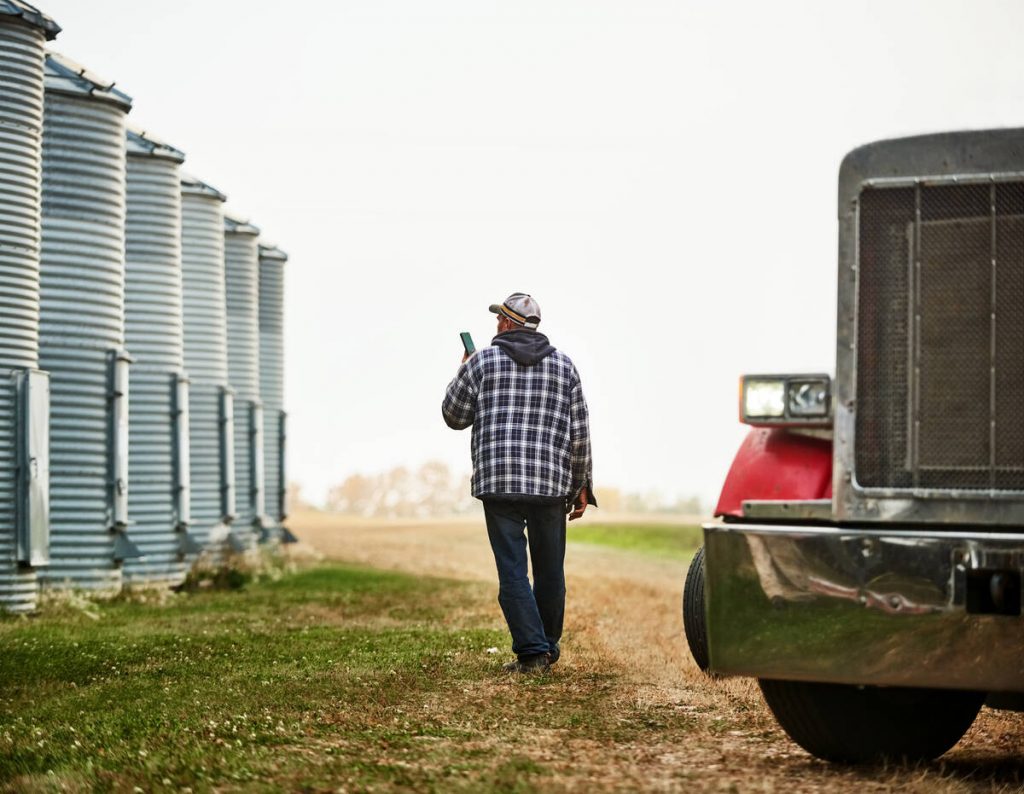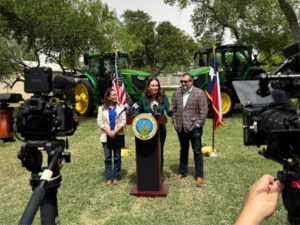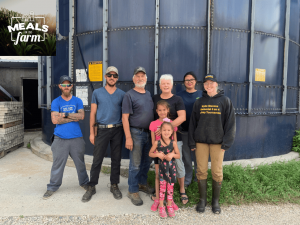
Cross-country takes on Trump, tariffs and trade tensions.
When it comes to the 2025 federal election, what do farmers from different regions of Canada have in common?
Canadians often lose sight of how big their country is — unless, for example, they get to rub shoulders with Europeans who are staggered by the time it takes to drive across a single province.
Canada is big — and with that comes the challenges of bridging different geographies and climate zones, regional cultures, languages, resources and economic needs.
Glacier FarmMedia reporters and contributors from Ontario, Quebec, Alberta and Manitoba asked farmers about their election priorities, how represented by the federal government they’ve felt — and finally, if there’s anything they’d like farmers from other regions to understand about the issues they face.
Although the tariffs might not always be top-of-mind for Ontario farmers as they contemplate the April 28 vote, it’s never far from the top of the list.
“We’ve got a bully right now. And he’s got (Canadian supply-managed agriculture) in his sights,” said Embro area dairy producer Braydon Older. “[Donald Trump is] obsessed with it, and I don’t know how that can work out good for us.”
“It just seems that one day Trump can wake up in a good mood and lay off the tariffs and then the next day wake up on the wrong side of the bed and say ‘let’s tariff everyone’,” said crop farmer Matt Underwood from the Wingham area.
Underwood said the federal government should be softening the blow of tariff uncertainty by promoting Canadian farm products more globally.
“We need to make sure we’re open to working with more buyers,” he said. “That’s both for Ontario and for the West. We really need to be highlighting what Canadian farmers have to offer to the world.”
Quebec
Christian Hébert is an apple and raspberry producer near Deschambault, west of Québec City. He’s also a Bloc Québécois’ candidate for the riding of Portneuf-Jacques Cartier. His comments have been translated from French.
He said the pandemic, climate change and now economic war with the United States have compounded the burdens on farms.
“The economic burden is so astronomic that youth consider themselves as the lost, or forgotten, generation,” he said. “I don’t want to be alarmist, but we’ve been experiencing this for the past forty years, and by “this” I mean the decline of agriculture.”
This year he’s seeing even more farms going out of business — some choosing to leave despite still being profitable, due to stress and exhaustion.
Alberta
Bryan Perkins owns a mixed pig and grain farm operation in the municipal district of Wainwright in east-central Alberta. Perkins said the on-again, off-again rollercoaster of U.S. tariffs is putting a strain on the industry and supports from the government may not be timely enough to help farmers who face hardships due to the trade war.
“There were indications by our current government that they want to do something through AgriStability, but the impact of that is well down the road,” Perkins said. “If there are benefits that might come from that, it’s months or years down the road. And we have issues now that are really affecting us at this point in time.”
Phil Constantin is a grain grower in Sturgeon County north of Edmonton. He said that although the U.S. tariff situation is harmful to the Canadian agriculture industry, he believes that President Trump is only standing up for his country.
“We do need to address this free trade agreement. These tariffs are doing nothing but hurting everybody,” Constantin said.
“And I know everybody is complaining about Trump, but I mean, the guy is looking out for his country. We need somebody like that for this country.”
Manitoba
Tariffs were the top concern for Scott Peters, a hog farmer near Steinbach in southeastern Manitoba.
“At any time it could change, so we have to be ready for anything,” he said.
Harley Siemens, an egg producer in south-central and southeastern Manitoba, said while egg farmers aren’t the ones in the cross-hairs, they are concerned that the supply-managed sectors stay in place.
“We still care about the system’s integrity,” he said.
Canadian dairy, specifically, has been a point of contention in Canada-U.S. relations, though Prime Minister Mark Carney has said dairy is off the table in trade negotiations.
Curtis McCrae raised the specter of Chinese tariffs on Canadian goods like canola oil and meal, peas and pork, which are typically thought of as retaliation after Canada placed tariffs on Chinese electric vehicles.
He said that if the federal government is going to use farmers as a “sacrificial lamb,” it needs to financially support farmers. “I can’t see electric vehicles ever overtaking agriculture as an economic driver of this country.”
You can now read the most important #news on #eDairyNews #Whatsapp channels!!!
🇺🇸 eDairy News INGLÊS: https://whatsapp.com/channel/0029VaKsjzGDTkJyIN6hcP1K



























